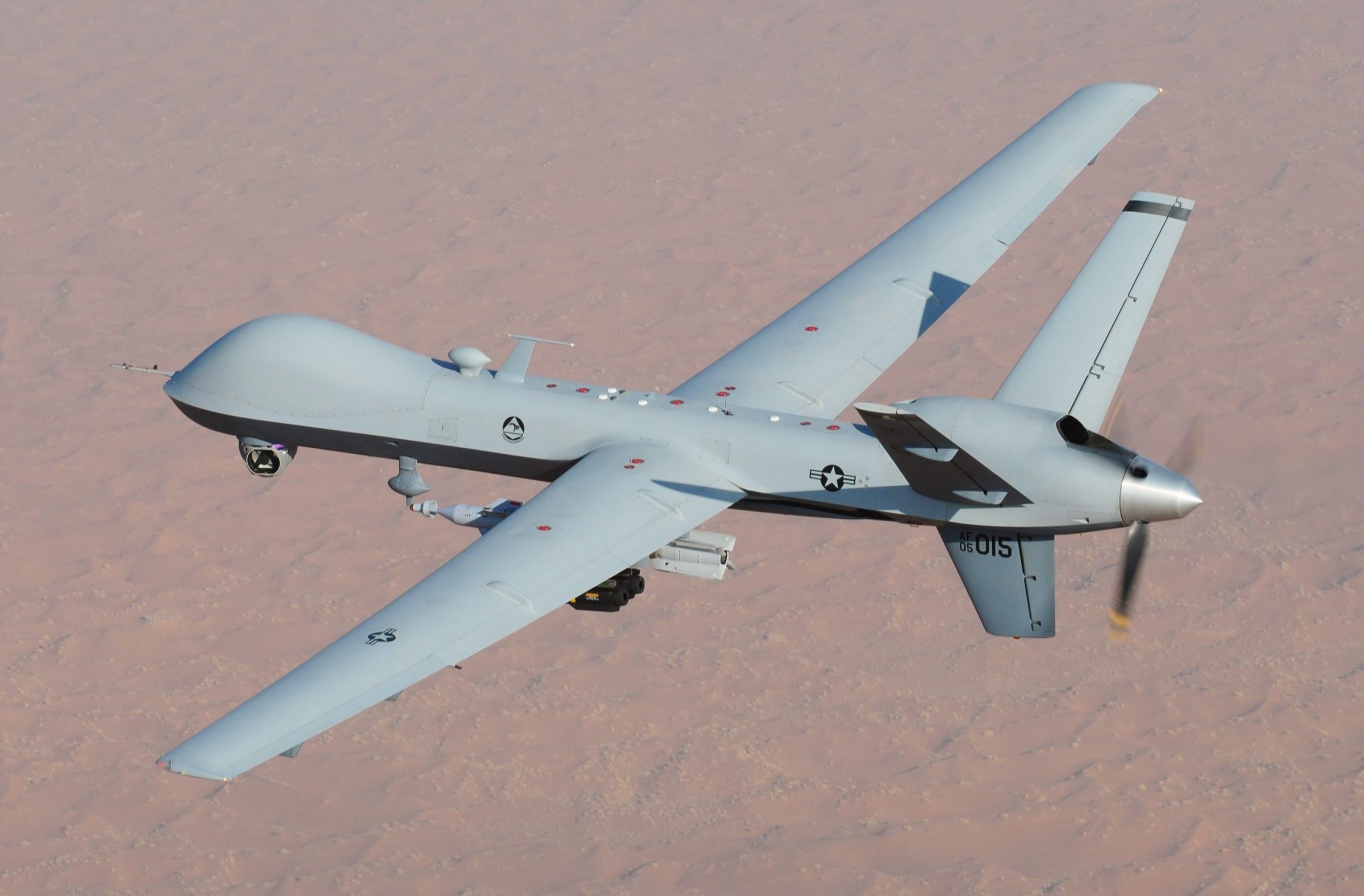Doha has been eyeing American military drones, however the purchase was delayed due to objection by several officials.
US Congress representatives sent a letter to government officials on Monday to object to an impending sale of over $500 million worth of armed drones to Qatar.
Republican’s Jack Bergman and Randy Weber wrote to Secretary of Defence Lloyd Austin and Secretary of State Antony Blinken demanding answers on the Qatari deal, according to an official US government website.
“We have serious concerns about Qatar’s need for such drones in light of their abysmal human rights record, foreign policy and national security considerations,” the letter read.
Read also: US official says Washington to look into Qatar’s F-35 request
“Their desire to purchase drones from the United States military should be a cause for alarm,” it added.
The officials accused Qatar of serious human rights abuses, referencing recent reports by global rights organisations such as Amnesty International and Human Rights Watch (HRW).
The Gulf state has been under the spotlight since it won a 2010 bid to host the World Cup 2022, with international organisations constantly attacking the Qatari government over alleged human rights abuses.
Several western reports that have surfaced online have accused authorities in Doha of being lax in protecting human rights, especially when it comes to migrant workers in the country.
These claims were exacerbated by a February report by The Guardian on working conditions for migrant employees in Qatar that cited misleading figures on migrant worker deaths.
The UK-based outlet reported over 6500 migrant workers from India, Pakistan, Nepal, Bangladesh and Sri Lanka had died in Qatar since the country started preparations for the World Cup tournament, falsely linking the number to the construction of World Cup stadiums.
Read also: US delay in Qatar drone sale blamed on ‘fear of anger’ among GCC neighbours: analyst
The congressmen also raised concern over Qatar’s politics and relations with US blacklisted groups such as Taliban and Hamas, as well as the Muslim Brotherhood. Notably, Washington had itself requested Doha hosts the Taliban office in Doha back in 2014 to allow for dialogue.
“It is not a coincidence that Qatar is seeking the same defence equipment the UAE requested from the Trump administration, leveraging the Abraham Accords and its normalisation of relations with Israel to secure approval. However, Qatar is not prepared to recognise and normalise relations with Israel and dismisses the view that the Abraham Accords are the path to peace in the region,” they wrote, referring to Qatar’s firm stance against forming ties with Israel at the expense of Palestinians.
“Approval of the sale would likely be received or interpreted by Saudi Arabia and the United Arab Emirates as a threat to their security given Qatar’s close relationship with terrorist organisations, including Hamas and the Taliban,” it alleged.
Bergman and Weber supported their argument by pointing towards Qatar’s financing of groups like Hamas, despite the US publicly funding billions of dollars worth of weapons to Israeli forces as they engaged in deadly force against unarmed Palestinians.
The congressmen urged Secretaries Austin and Blinken to “raise these concerns on behalf of the American people” on the occasion of the amir’s impending visit to the US.
The letter noted that the deal will only harm the US national security interests in the region and its reputation as a “defender of human rights”.
‘Qatar frustrated’
Officials from the Gulf state earlier expressed that they would use US-supplied drones to keep their eye on giant natural-gas facilities and to monitor terrorist threats in the region, as well as prevent terrorist activities in other regions.
Qatar’s hosting of the FIFA World Cup next year was also attributed in the nation’s request for drones, with officials believing that the mega-event will need protection against potential attacks.
While the Pentagon favours the sale, the US State Department has yet to approve the request despite green lighting similar applications from other allies, including the United Arab Emirates.
“The frustration from our perspective is that there is no clear indication as to why there is a delay on our request,” a Qatari official told the WSJ previously, pointing to Doha’s recent evacuation operations in Afghanistan as proof of its reliability as an ally, especially in matters concerning security and stability.







